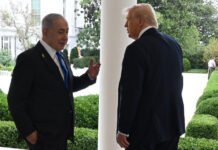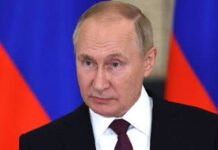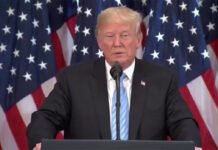As U.S. President Donald Trump reasserts his hardline trade stance with heavy retaliatory tariffs, Indian corporate leaders are recalibrating their global strategies. The imposition of tariffs on several key economies—designed to protect American industry—has triggered a ripple of concern across global markets, including India, prompting business houses to hedge their bets by doubling down on domestic investment opportunities.
Trade Tensions: A Wake-Up Call for Indian Industry
The Trump-era tariffs, which have re-emerged as a key policy instrument amid intensifying geopolitical uncertainty, are expected to directly impact global supply chains and cross-border trade flows. Indian companies, many of which have significant exposure to U.S. markets through exports and overseas investments, are now reevaluating their risk matrices.
“The retaliatory tariffs may have a significant impact on the purchasing power of the U.S. consumer,” said Amit Agarwal, Group CFO of Raymond Ltd, which exports textiles and auto components to the U.S. “We will have to wait to fully understand its impact on the U.S. and global economies.”
Strategic Pivot: Turning Inward to Build Resilience
In the face of uncertainty, India Inc is undergoing a strategic shift—redirecting capital and focus toward domestic markets. Key sectors gaining traction include infrastructure, energy, semiconductors, electronics manufacturing, and logistics.
Investors are sensing new growth avenues amid India’s stable macroeconomic fundamentals, growing consumer base, and proactive industrial policy. Government-led initiatives like PLI (Production-Linked Incentive) schemes, ‘Make in India’, and Atmanirbhar Bharat are further accelerating this domestic investment momentum.
Indian Giants Betting Big on Home Turf
Despite the global headwinds, India’s leading conglomerates are committing to ambitious capital expenditure plans:
Adani Group has announced $100 billion in investments across energy, infrastructure, and data center ecosystems.
Tata Group is set to invest $120 billion in areas such as EVs, renewable energy, electronics, and semiconductors.
JSW Group has committed $7 billion by FY26 to expand operations in steel, clean energy, and electric vehicles.
According to Kotak Institutional Equities, the Indian private sector has an investment opportunity of nearly ₹32 lakh crore (~$384 billion) in the infrastructure sector between FY25 and FY30.
“The economy is growing at 6.5%, and government incentive schemes provide confidence,” noted a senior business executive. “Local manufacturing will likely scale up, though global uncertainty and falling domestic demand may temporarily slow corporate investments.”
The U.S. Exposure: A Mixed Bag
While many Indian companies are focusing inward, the U.S. still remains a critical market:
Hindalco’s Novelis is investing $2.5 billion to expand its aluminum capacity in North America.
Adani Group has pledged $10 billion in U.S. energy security projects aimed at generating 15,000 jobs.
JSW Steel is expanding its Texas operations with an investment of $110 million.
These investments reflect a dual strategy—leveraging global opportunities while building domestic capacity to de-risk operations.
Challenges Ahead: Competitive Pressures and Trade Realignments
Amit Agarwal of Raymond also pointed out a lesser-discussed side-effect of retaliatory tariffs: India facing increased competition in third-country markets.
“Other major markets may continue to buy goods from the duty-affected countries, resulting in India facing competition in those markets,” he cautioned.
India may also witness an increase in imports from tariff-hit economies, which could challenge domestic manufacturers unless the government responds with calibrated trade and tariff policies.
From Reaction to Realignment
The emerging scenario isn’t just about responding to Trump-era tariffs—it’s about long-term strategic realignment. Indian industry leaders are no longer waiting for global markets to stabilize. They’re investing in resilience, diversifying supply chains, and betting on India’s economic ascent.
As global economic uncertainty persists, India’s robust investment pipeline across infrastructure, clean energy, and tech-driven manufacturing suggests that the future of Indian business will be increasingly self-reliant, competitive, and globally agile.

















[…] Source link Donald Trump,Tariff War […]